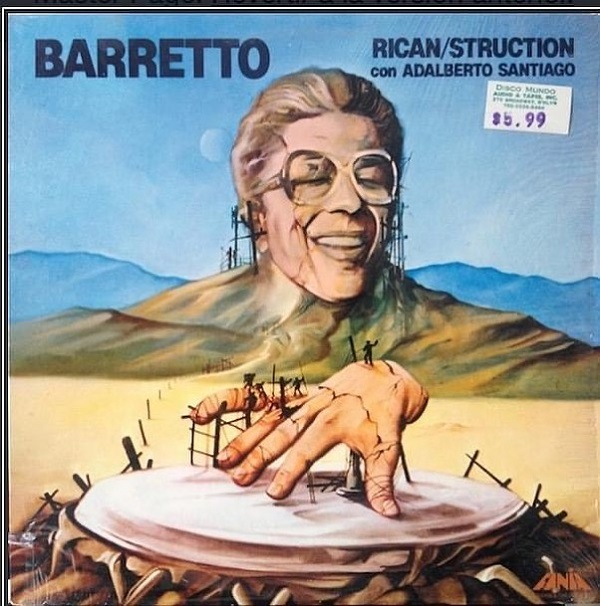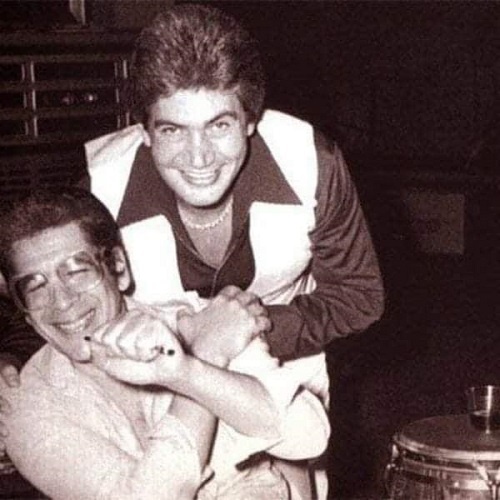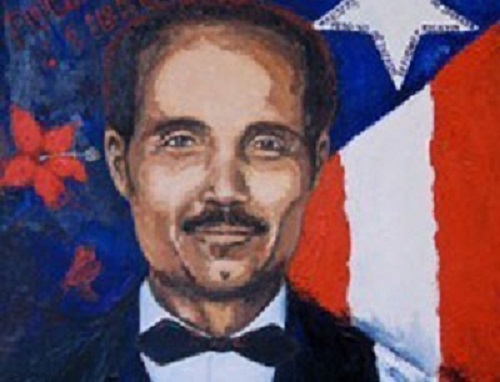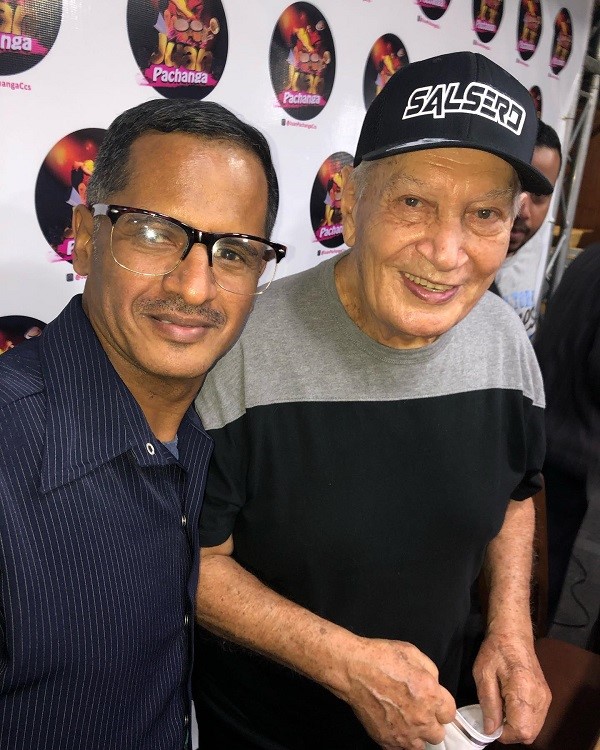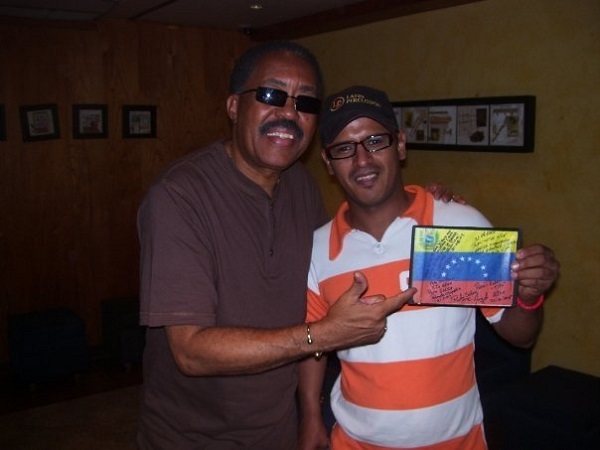North America / United States
Tribute to Billo’s. How was made?
Legends was conceived between April and September and it is already a reality! The album that is making people of all ages dance.
The record label JN Music Group is recognized for enhancing the work of Latinos in the United States. The company has 37 years of experience in the market and is chaired by Juan Hidalgo and Nelson Estévez, producers of Latin music in its different genres. Both have set themselves the goal of promoting other genres because “not everything is reggaeton”.
Adrián Frometa, grandson of the remembered Luis María Frometa “Billo’s”, is the new Director of the orchestra and was in charge of the negotiations around the album.

“Los Legendarios” was conceived as a nice reminder of the musical career of maestro Luis Frometa. The proposal was born in these months of quarantine and the invited artists did not hesitate to participate. Different exponents of tropical music came together to enhance the work of the Dominican artist.
“For us as a record label it is an honor to make this tribute album that maestro Billos deserved it for a long time, the artists we have contacted are excited to participate in what we are sure will be the end of the year album”, commented Nelson Estévez owner by JN Music Group.
The project aroused great interest from fans around the world; and from now on it is considered the “album of the year”. A few days after its premiere, the views on YouTube have exceeded ten thousand visits. “Sigan bailando”, performed by Milly Quezada, reached forty thousand views.
Established artists such as Tito Rojas, Oscar D ’León, Wilfrido Vargas, Carlos Vives, Milly Quezada, Eddy Herrera, Karina, Alex Bueno, Charile Aponte, Sergio Vargas and Don Fulano; they were in charge of giving life to the remembered songs.
A closing of the year that arrives in style, under the musical production of Remil Cobi Renna and Victor Pabon.
“Tres Perlas”, performed by Carlos Vives, “De qué me sirve el cielo” by Karina, “El Brujo” by Don Fulano, “Por encima de todo” by Óscar D ‘León, “Sigan bailando” by Milly Quezada and “ Caminito De Guarenas” by Alex Bueno, are some of the video clips that are already on the different digital platforms. The cover is accompanied by an illustration by Luis Frometa and the interpreters.
The initiative took place during the long days of the global pandemic, where many artists and producers took the opportunity to exploit their creativity, generating new materials; and pleasantly surprising the fans. The album was recorded between Miami, New York, Colombia, the Dominican Republic and Puerto Rico.
“Tres Perlas” was very famous in 1971. In this case, Carlos Vives was in charge of bringing it to life. It is the beginning of a job well thought out and done with the heart. It has an animated audiovisual work where Vives and the remembered Frometa are observed. There are also three ladies, symbolizing “Santa Marta, Barranquilla and Cartagena”, present in the song.
Remembering the golden age
The singer is remembered for his great successes, as well as his great love for Colombia and Venezuela.
Luis María Frometa was the founder of Billo’s Caracas Boys and, for years, he remained at the helm. Starting in the 1960s, they became more famous in Colombia. He took part in family gatherings and renowned events.
Even Pablo Escobar himself, a remembered drug trafficker from that country, wanted to have him in some of his celebrations. In fact, he came up to thank her himself after he sang for his mother’s birthday. However, his children claim that he was not aware of who the hiring was for and if he had known, he would not have wanted to make an appearance.
The Billo’s also had the opportunity to appear at the Bogotá Modelo Prison, after Carlos Orjuela, Frometa’s friend, was confined in one of his cells. The singer did not hesitate to visit his friend. However, he did not allow it. He looked for excuses to prevent me from visiting that place. This was not an impediment for Frometa who ended up showing up at the facilities. For him, they too had the right to enjoy his music. Those who accompanied him affirmed that the energy was incredible and everyone enjoyed the presentation.
The group had great talents such as: Memo Morales, Cheo García, Felipe Pirela, Manolo Monterrey, José Luis Rodríguez, Rafa Galindo, Víctor Pérez and Nelson Henríquez.
Luis María Frometa Pereira, was born in the capital of the Dominican Republic, on November 15, 1915. He got his nickname for a phrase he used very frequently, he called any route that came his way Billo. He started in music from a very young age. Represented the Santo Domingo Symphony and the Firefighters Orchestra Band. So he walked through some small bands, until he reached his first big break. Venezuela was one of the first countries to receive him with open arms and where he was presented for the first time under the name “Billo’s’ happy boys ”´; ignoring the demand of Rafael Leonidas Trujillo, dictator who led his country.
Even when the band disintegrated, Frometa remained in Venezuela. Going through difficulties, economic downturns and a disease that took him away from the stage. However, he returned in style and was consolidated in the memory of those who enjoyed his songs. The contracts did not stop arriving and thus were the beginnings of a band that celebrates 80 years of musical trajectory.
A tribute to history
This is why this 2020 will be a celebration for the issues that moved masses and passed from generation to generation. “Legends” consists of twelve songs and ten originals by the group.
The idea is that Billo’s remains in the hearts of his fans. After 80 years since its creation and some 100 productions are still valid. His repertoire has always been the most varied; It ranges from boleros, guarachas, porros and Dominican merengue. Also, of Caribbean music.
Milly Quezada, a Dominican merenguera with a Colombian heart, was one of the special guests. In charge of interpreting “Sigan Bailando” and was very enthusiastic.
“What I consider to be one of the most contagious and joyful tropical songs that best defines the happy and fun spirit of Latin Americans and especially of us, the Caribbean, who carry the rhythm in our blood. Definitely, the greatest and most important contribution of the Billo’s Caracas Boys was the presentation, diffusion and positioning of the Dominican merengue, which he transmitted with such musical and literary quality, as well as other Caribbean genres that belong to all of us, ” said Quezada.
Carlos Vives also premiered his album song: “Tres Perlas”. He confessed himself a fan of the teacher Fometa and, for this, he is very excited.
“If there is a legendary orchestra, it is Billo’s. I want them to enjoy it, to mourn it, because I know that many will do it, and that the youth discover a great figure in music that is not only from Dominicans, Venezuelans and Colombians, but from all of America ”, said the artist through from your Twitter account. “Participating in this album is as if I had won a prize, I don’t know what, but I feel like a prize,” said Vives.
Legendarios is now available on different digital platforms under The Orchard Music label (on behalf of J&N Records, LLC). Do not miss it!













